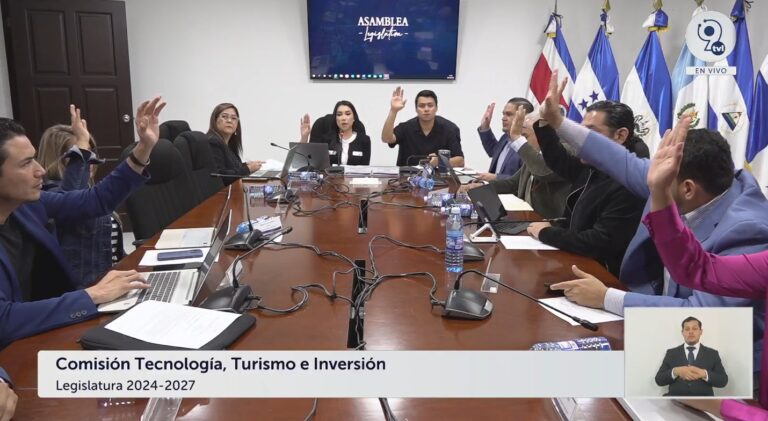
The Legislative Assembly’s Technology, Tourism, and Investment Committee issued a favorable opinion this monday on the new Law for the Decentralized Supply of Electric Energy. This proposal seeks to expand access to electricity, incentivize sustainable production, and comprehensively regulate the interaction between users, suppliers, and distributors of the national energy system.
The main purpose of this legislation is to grant end users the right to generate, consume, and reinject electricity into the distribution grid, using systems and equipment recognized and approved by the competent authority. The law promotes the use of clean technologies and the decentralization of energy supply to reduce dependence on traditional sources and foster environmental sustainability.
Furthermore, it seeks to establish an orderly framework so that both energy suppliers and consumers have legal, technical, and fiscal certainty, while strengthening national energy policy.
The initiative was presented by Daniel Álvarez Campos, Director General of the Dirección General de Energía, Hidrocarburos y Minas, who noted that “this law is part of an energy policy promoted by President Bukele to promote renewable energy. The objective of the law is to contribute to the sustainability of the energy mix in El Salvador, incentivizing residential and industrial end-users to install solar panels or other means of generating renewable energy”.
“It also includes incentives for energy storage systems, which will allow users to use the energy generated by the panels for longer periods of time, and also recognizes users’ right to inject this energy into the grid and be duly paid for. While technical regulations already exist to this day that incentivize this activity, we want to elevate this regulation to the status of law so that clear tax benefits, end-user rights, and obligations for all stakeholders can be established, to guarantee the spirit of the law”, said the director General of Energy, Hydrocarbons, and Mines of El Salvador.

The legal framework provides tax incentives to both suppliers and end-users. Suppliers will be exempt from paying income tax, VAT (Value Added Tax), and import duties on machinery or equipment used exclusively for energy activities covered by the law. End-users will be able to deduct the investment in the acquisition and installation of systems from their income, in addition to being exempt from VAT for the contracting of these services. These benefits will be valid for 10 years from the effective date of the decree, with oversight by the Ministry of Finance through the Dirección General de Impuestos Internos y la Dirección General de Aduanas.
The law also places a strong emphasis on end-user protection. The Defensoría del Consumidor will be responsible for monitoring the market to ensure that tariff and tax reductions are reflected in the prices of systems and installations. If unjustified increases or abusive practices are detected, it may notify the competent authorities to apply sanctions.
The law will be implemented by the Superintendencia General de Electricidad y Telecomunicaciones (SIGET), an autonomous institution that already performs regulatory and oversight functions in the electricity and telecommunications sectors in El Salvador. Its new powers include issuing special regulations and tariff schedules that determine the value of energy reinjected into the grid, establishing a catalog of systems and equipment that meet technical requirements, supervising connections, and preventing operators from impeding user rights.
The SIGET will operate with the approval of the General Directorate of Energy, Hydrocarbons, and Mines (DGEHM), ensuring consistency with national energy policies.
The law will enter into force eight days after its publication in the Official Gazette, and the SIGET will have 60 days to issue the corresponding special regulations, which will establish the technical and tariff parameters of the new energy production and consumption model.
Read more







